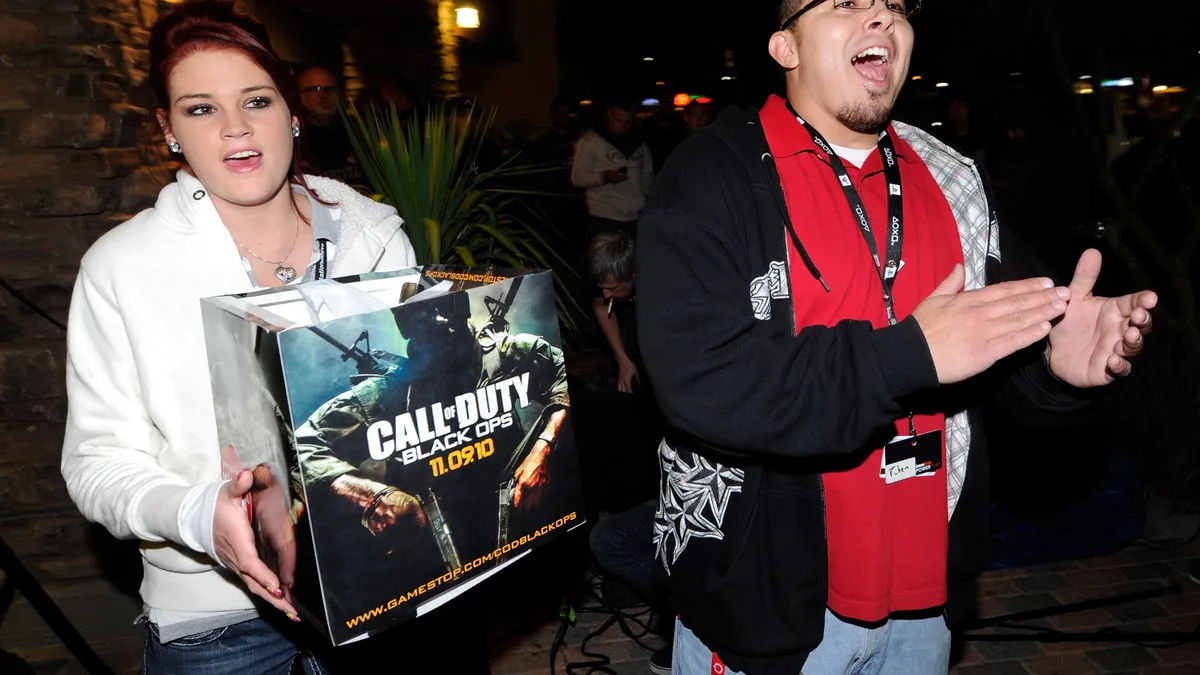Dive Brief:
- Activision Blizzard has agreed to end the compensation cap it imposes on professional Overwatch and Call of Duty players under a consent decree it agreed to with the Department of Justice April 3.
- “Professional esports players — like all workers — deserve the benefits of competition for their services,” Assistant U.S. Attorney General Jonathan Kanter said in announcing the agreement.
- The company ended its so-called competitive balance tax in 2021, when DOJ started looking into whether the cap violated restraint of trade law by limiting how much teams can spend on players. Under the consent decree, the company will make its decision to end the cap permanent.
Dive Insight:
Activision launched its professional Overwatch league in 2018 and its Call of Duty league in 2020. Professional earnings vary widely, but it’s not uncommon for top players to earn hundreds of thousands of dollars in annual salary for their team role.
Players can earn prize money, too, in some cases more than $1 million a year, according to a SportsEarning list published by Dextero. But Prize money earnings weren’t referenced in the DOJ complaint and consent decree.
In its complaint, filed the same day as it announced the consent decree, DOJ said earnings potential should be unlimited because the careers of professional players tend to be short.
“Esports athletes … have limited time to maximize their earnings,” DOJ said. “Esports pros spend thousands of hours practicing and honing their skills for a chance to make a professional roster; once they sign with a team, many players train at least eight hours every day and up to 70 hours each week.”
In a video he produced on the game’s earnings volatility, former professional Call of Duty player Ian Wyatt said top players a few years ago could earn a quarter of a million dollars in salary one year but be dropped from the team the next year.
“Call of Duty changes titles every single year,” he said. “So, you could be a very good player, have a lot of success, one year … and then the next year be bang average or even worse, be washed. And that could be it.”
Other professional sports leagues impose caps on earnings by limiting how much teams can distribute in pay to their roster of players. But unlike in other leagues, players in the esports leagues aren’t unionized, DOJ said. So they’ve had no representation in the deal the teams made with Activision to limit earnings.
“The players in Activision’s esports leagues … never negotiated or bargained for these rules,” DOJ said in its complaint.
Under the leagues’ competitive balance tax, teams each year agree to a cap in total player earnings. If a team’s salary payments exceed the cap, the amount of excess is distributed evenly to the other teams.
“If Activision set a Competitive Balance Tax threshold of $1 million,” DOJ said, “a team that spent $1.2 million on player compensation in a season would pay a $200,000 fine, which would be distributed to the other teams.”
By their own admission, teams would have spent more on player compensation had the cap not been imposed.
“The Tax not only harmed the highest-paid players, but also depressed wages for all players on a team,” the complaint said. “If a team wanted to pay a large salary to one player, the team would have to pay less to the other players on the team to avoid the Tax.”
Professional esports is growing quickly and millions of people watch professional games online, according to the complaint.
“The Antitrust Division remains committed to protecting workers across all types of industries,” Kanter said.











